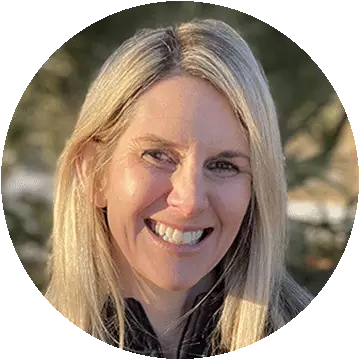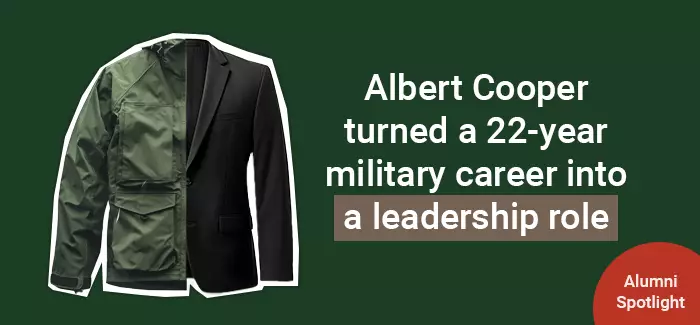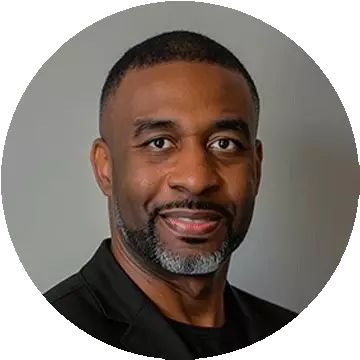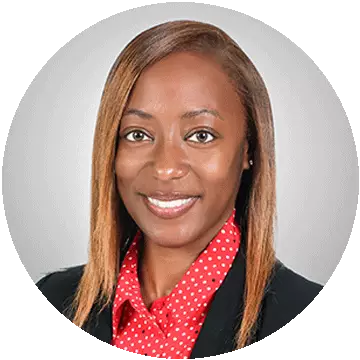UOPX alumni spotlight: Albert Cooper

Written byô Stephanie Hoselton

An unexpected military deployment doesnãt sound like the ideal context for going to school. But Albert Cooper (MBA, 2009) wasnãt considering just any old school for his masterãs degree. Nor has he ever let time and location dictate his achievements. As his story proves, a 22-year military career and a successful transition to the civilian sector have more to do with who you meet along the way than what the circumstances were when you started.ô
Citizen of the world
Born in Panama, Cooper made his way to the United States when his mother fell in love with a U.S. Army service member and moved the family to Oklahoma. After that, they went to Texas, and then to Japan, Korea and Thailand.
Cooper and his three brothers followed his mom and stepfather all around the world, in other words, but much of it was lost on Cooper. At least at first.
ãI got that experience as a kid, not knowing how fortunate I was,ã� he says. ãAt that moment, I was just thinking, ãI donãt want to go on a plane! I donãt want to not sleep in my bed.ãã�
Just as Cooper began to appreciate his global exposure, however, it was time to settle down to life in the States as a ninth grader. His stepfather had retired from the military and moved the family one last time to Newport News, Virginia.
Cooper navigated the transition by pouring energy into sports. He excelled in track and field and earned a scholarship to a state university in Tennessee. Soon, he transferred to an institution in Florida, mostly because the idea of going to school near the beach was irresistible.
Sand and surf turned out to be poor motivators. ãI wasnãt mature enough to go for the college life, be by [my]self and try to figure it out,ã� he says.
Cooper was at a standstill. He knew he wanted something besides heading home and starting work. Thatãs when he looked to his friends who were joining the Army and Navy. Maybe they had the right idea, Cooper recalls thinking. Tellingly, he decided on the Marine Corps, ãbecause it looked like it was the most challenging.ã� His adulthood had officially begun.
Leading the charge
Cooper successfully completed a few classes while deployed and was ready to dive in once back home. As it turned out, studying on his home turf didnãt automatically eliminate all challenges. There was, specifically, the uphill struggle of several group projects.
ãWith the alpha personality,ã� he says and laughs, ãyou just want to get it done, take it over.ã�
Cooper wanted to keep his GPA close to 4.0, so learning to let everyone pull their weight felt like twice the challenge. Yet this lesson turned out to be one of the most profound for him.ô

Albert Cooper
MBA, 2009
With the group projects, I learned so much because a lot of my peers were in so many different industries and doing so many different, wonderful things abroad,ã� Cooper says. ãWe had CEOs that were part of our group projects. We had stay-at-home moms. You had people who were just starting school. You had those that were actually retired. It was just amazing the people that you met.ãô�
Cooper appreciated how everyone from the medical field to entrepreneurs were ãso willing to share their knowledge.ã�
After completing his degree, Cooper applied his new knowledge to his next role leading the Marine Corps Special Force Command. ãIt was definitely a pleasure to be in charge of that department for those individuals [who] do a lot of things that are not highlighted or in the news,ã� he says.
Eventually, after reaching a 22-year milestone with the military, Cooper began to eye a civilian career. His daughter was in high school, he had remarried and felt like his presence at home was needed. It was time to transition.
Cooper and his wife relocated to Atlanta to be closer to his children. He started interviewing with a number of companies that believed in his transferable skills as a leader. Eventually, Cooper landed at Coca-Cola United, where, as an employee relations manager for the South Metro Atlanta Division, he has been leading and serving 1,000 employees daily since 2018.ô
For Cooper, the biggest difference between leading in the military and in the civilian sector was learning to be more careful with his words.
ãFrom a military standpoint you are more directing,ã� he explains. ãYou are saying ãI need this moved from here to there.ãã�
In the civilian sector, by contrast, ãthereãs a lot more I have to explain [with regard to] why I need this moved from here to there.ã� He laughs as he adds, ãYou know, I have to put please in my email [and say], ãCan you please move this.ãã�
While Cooper says this good-naturedly, there is always a learning curve. Fortunately, Coca-Cola has offered up plenty of leaders who model good communication. Cooper says his corporate director, for example, ãis very hands on, very knowledgeable, and so sheãs a really good person [who] explains things.ã� His VP also stays tuned in at every level, he says.ô ô

Cal Purvis
Just as with the group projects at UOPX that he learned to appreciate, the relationships heãs built after his military career embrace a give-and-take aspect. Cal Purvis, a fellow HR manager at Coca-Cola, says she knew right away that Cooper ãhad a lot of knowledge.ã� As she continued to serve alongside him, she was surprised to see that he is also ãa very fun person to be around. He likes to laugh and have a great time. Heãs adventurous and up for any challenge.ãô�
Not surprisingly, Cooper feels confident he can achieve his next goal ã� to become a director of HR ã� by surrounding himself with solid peers and leaders like Purvis and his VP and director.
ãI really do have good leaders,ã� he shares. ãWhen you have that type of leadership and you have those individuals [who] are there, they guide you and youãre able to call on them and lean on them.ã�
For someone who has traveled the globe, who has built a military career in cities across the country, and who has found success in civilian life as well, itãs worth noting the thread that ties it together. In Cooperãs case, personal connection ã� and the insights and knowledge it affords ã� makes all the difference. ô
Find out if your employer is one of theô more than 1,500 organizationsô âøÆÐäÍÆ» works with to offer education benefits.
Meet Phoenixes like Albert. Make connections, build relationships and be part of a growing community.ô Join a chapter.
GI BillôÛ is a registered trademark of the U.S. Department of Veterans Affairs (VA). More informationô about education benefits offered by VA is available at the official U.S. government websiteô atô .

ABOUT THE AUTHOR
Stephanie Hoselton has always enjoyed a good story. She gained an English degree from Texas A&M University with the plan to teach or write. As life happens, she fell into recruiting and didnãt look back. Stephanie spent over a decade in agency recruiting, placing candidates at SAP, Verizon and across financial services and healthcare. She started in Talent Acquisition with the âøÆÐäÍÆ» in 2021. She loves hearing candidates tell their career stories and sharing the story that is âøÆÐäÍÆ».
This article has been vetted by âøÆÐäÍÆ»'s editorial advisory committee.ô
Read more about our editorial process.
Read more articles like this:


